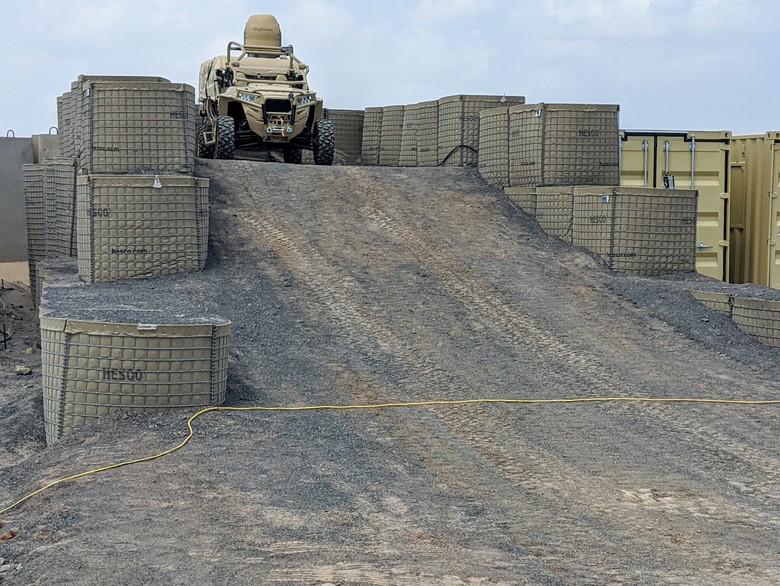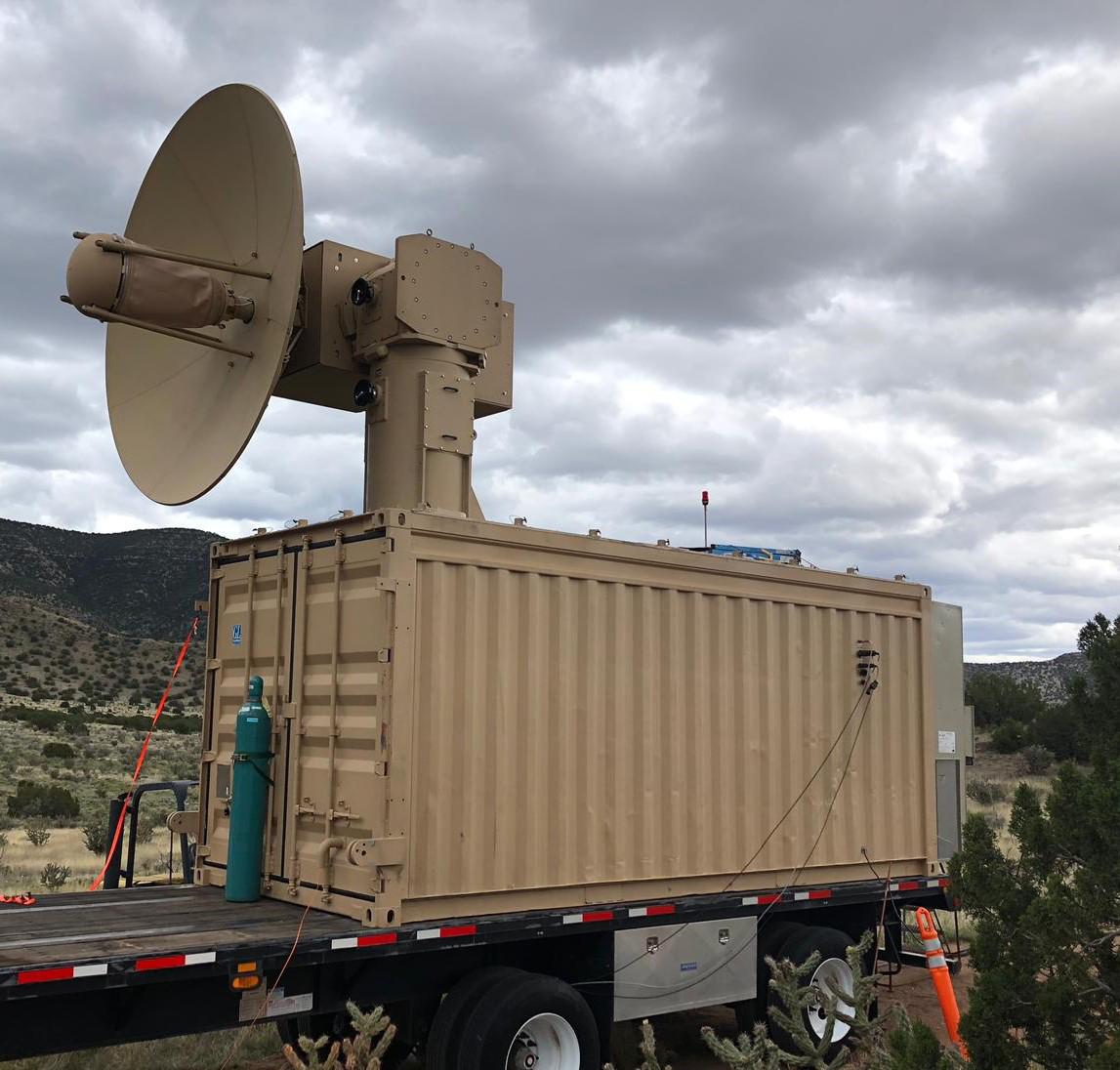The Air Force Research Laboratory (AFRL) has deployed the first high-energy laser weapon system overseas to combat drones for a 12-month field assessment.
During the field assessment, ARFL will evaluate if the directed energy weapon system can be a game-changing capability to defend high-value assets from drone swarms or drone attacks.
Several systems the AFRL will be evaluating over the 12 months include the Raytheon High Energy Laser (HELWS), Raytheon High Power Microwave (PHASER), and the AFRL Tactical High-Power Operational Responder (THOR) drone killer.

"THOR is a directed energy game-changer," said Dr. Kelly Hammett, AFRL's Directed Energy director.
"Drones are becoming more and more pervasive and can be used as weapons intended to cause harm to our military bases at long standoff ranges. We built the THOR weapon system as a deterrent against these type threats. THOR with its counter electronic technology can take down swarms of drones in rapid fire. This capability will be an amazing asset to our warfighters and the nation's defense," said Hammett.

"The overseas field assessments are allowing us to understand directed energy as a capability against drones. This gives us a better picture of the military utility, reliability and sustainability, training requirements and implementation with existing base defense," said Dr. Michael Jirjis, the Base Defense Experimentation director of the Air Force Strategic Development Planning & Experimentation (SDPE) Office.
Jirjis said the 12-month assessment of the directed energy weapon system would shape the Air Force's future program of how to integrate the new weapon system on military bases.
Earlier this year, the US Navy revived anti-aircraft flak rounds from WWII to combat the proliferation of drones on the modern battlefield. The US military as a whole has an operational gap and currently has limited technology that is deployed to defend against drone attacks.
In September, the Army was developing the Ballistic Low Altitude Drone Engagement (BLADE) prototype to defend military bases against drones.
For years, we've pointed out how the Pentagon's cost-to-kill ratio for downing a drone is exceptionally high. The military could fire a missile that has a price range of tens of thousands of dollars to hundreds of thousands of dollars, if not millions of dollars to down a $500 drone that has a few mortars strapped to it. Laser weapons could certainly lower the cost-to-kill ratio.